

51957
BioCam
capsule endoscopy supported by AI
Poland, Lower Silesia
Market: Medicine, Artificial Intelligence
Stage of the project: Prototype or product is ready
Date of last change: 18.04.2021
Poland, Lower Silesia
Market: Medicine, Artificial Intelligence
Stage of the project: Prototype or product is ready
Date of last change: 18.04.2021
Idea
BioCam designs and manufactures an endoscopic capsule for imaging of the digestive system along with AI-powered software for automatic detection and real-time determination of potential threats.
The company's goal is to reduce the cost of gastrointestinal examinations, increase patient comfort and popularization of capsule endoscopy.
The innovative AI software helps to reduce the time of analysis by adoctor by 90%.
Our method relies on AI software to reduce the time needed for the digestive system diagnostics from 10 hours to even 30 minutes.
The company's goal is to reduce the cost of gastrointestinal examinations, increase patient comfort and popularization of capsule endoscopy.
The innovative AI software helps to reduce the time of analysis by adoctor by 90%.
Our method relies on AI software to reduce the time needed for the digestive system diagnostics from 10 hours to even 30 minutes.
Current Status
We are in the process of pre-implementation works - we have a working technology, we test it in real conditions as part of a medical experiment, we are finishing RnD works to start the medical certification process.
In addition, we negotiate terms of cooperation with industry corporations.
Therefore, we do not have traction.
In addition, we negotiate terms of cooperation with industry corporations.
Therefore, we do not have traction.
Problem or Opportunity
Gastrointestinal tract is responsible for 30% of all cancers.
Colorectal cancer is the most severe gastrointestinal disease and the deadliest cancer in Europe, being responsible for 170 000 deaths yearly in the EU. The scaring fact is that it is preventable and curable, if detected early enough. However, in the EU most patients are detected at stages III or IV, and only 13% of patients are detected at stage I. Cost of treatment largely varies in Europe depending on the stage at diagnosis, being the
difference in cost between early stage and late stage estimated to be tenfold, from stage I (~3000 EUR) to later stages (average 40 000 EUR).14 It has been estimated that 130,000 lives could be saved per year and more than 3 billion€ in healthcare budget savings could be generated yearly by managing to detect 50% of the colon cancer patients at stage I. For this to happen, screening programmes must be effective. The Council of Health Ministers recommended in 2003 that all Member States implement population-wide screening for colorectal cancer, for all citizens between 50 and 74 years old. Despite these recommendations only 14% of European citizens participate in
colorectal cancer screening programmes.
Barriers for patients to participate in screening programmes are complex.
Some are related to the access to the healthcare system and long waiting times to the tests and subsequent interventions. Yet, participation requires individual patient decision and willingness. Lack of awareness, fear, embarrassment, and other socio-demographic, psychosocial and economic factors are presented as barriers for the patient to participate in the screening programs.
Finally, COVID-19 pandemic is hampering the access to the health system to patients that are not suffering from conditions that require urgent medical care. European countries have reduced to the minimum the scope of preventive medical campaigns to make healthcare personnel and facilities available to the more urgent COVID-19 patients. Most medical consultations are today done remotely, the doctor relying on thepatient’s ability to relate symptoms and estimate their severity. Periodic patient screening visits have beenpostponed. Although today’s pandemic will eventually end in a few years’ time, patients, doctors and decisionmakers have already experienced the problems and benefits of telemedicine and the estimation is that remotepatient observation will still remain the chosen option whenever it allows for an adequate diagnosis.
Colorectal cancer is the most severe gastrointestinal disease and the deadliest cancer in Europe, being responsible for 170 000 deaths yearly in the EU. The scaring fact is that it is preventable and curable, if detected early enough. However, in the EU most patients are detected at stages III or IV, and only 13% of patients are detected at stage I. Cost of treatment largely varies in Europe depending on the stage at diagnosis, being the
difference in cost between early stage and late stage estimated to be tenfold, from stage I (~3000 EUR) to later stages (average 40 000 EUR).14 It has been estimated that 130,000 lives could be saved per year and more than 3 billion€ in healthcare budget savings could be generated yearly by managing to detect 50% of the colon cancer patients at stage I. For this to happen, screening programmes must be effective. The Council of Health Ministers recommended in 2003 that all Member States implement population-wide screening for colorectal cancer, for all citizens between 50 and 74 years old. Despite these recommendations only 14% of European citizens participate in
colorectal cancer screening programmes.
Barriers for patients to participate in screening programmes are complex.
Some are related to the access to the healthcare system and long waiting times to the tests and subsequent interventions. Yet, participation requires individual patient decision and willingness. Lack of awareness, fear, embarrassment, and other socio-demographic, psychosocial and economic factors are presented as barriers for the patient to participate in the screening programs.
Finally, COVID-19 pandemic is hampering the access to the health system to patients that are not suffering from conditions that require urgent medical care. European countries have reduced to the minimum the scope of preventive medical campaigns to make healthcare personnel and facilities available to the more urgent COVID-19 patients. Most medical consultations are today done remotely, the doctor relying on thepatient’s ability to relate symptoms and estimate their severity. Periodic patient screening visits have beenpostponed. Although today’s pandemic will eventually end in a few years’ time, patients, doctors and decisionmakers have already experienced the problems and benefits of telemedicine and the estimation is that remotepatient observation will still remain the chosen option whenever it allows for an adequate diagnosis.
Solution (product or service)
BioCam designs and manufactures an endoscopic capsule for imaging of the digestive system along with AI-powered software for automatic detection and real-time determination of potential threats.
The company's goal is to reduce the cost of gastrointestinal examinations, increase patient comfort and popularization of capsule endoscopy.
The innovative AI software helps to reduce the time of analysis by a doctor by 90%.
Our method relies on AI software to reduce the time needed for the digestive system diagnostics fr om 10 hours to even 30 minutes. We have also developed amethod enabling the capsule to stop at the place of the lesion detection wh ere a surgical intervention is necessary.
We want to deliver a unique and effective system for the assessment of the status of the gastrointestinal system and automatic evaluation of the images for the selection of those containing abnormalities that should be assessed by the physician. The method will constitute a groundbreaking advance over the gastrointestinal diagnosis procedures used routinely, and over the more innovative endoscopic capsule systems.
Our BioCam capsule system maincomponent is the pill cam that travels through the entire digestive tract, including the small intestine, collecting HD images every 2 seconds. It is made of an inert and non-toxic material (polymethyl methacrylate) not exceeding the dimensions of available drugs (28.5 x 11.5 mm) and being, thus, easy to swallow and imperceptible by the patient, who can continue with the everyday activities .It is equipped with LED diodes for illumination with white and infrared lights and a high-definition camera that takes color and near-infrared pictures. The operating time of the capsule is 8 to 10 hours. The capsule is built using magnetic materials that allow for its immobilization and precise location in a certain point to proceed with a local chirurgical intervention.The second component is a receiving device (transmission belt) that is carried by the patient close to the body and collects the data sent by the capsule Bluetooth connection. The diagnosis is accelerated thanks to a third component, a dedicated software for image analysis in real time and automatic detection of disorders that is based on AI and deep learning neural networks. The software supports the gastroenterologist’s diagnosis/interpretation work, by selecting the images that are suspicious to present a disorder. Thanks to this feature, the diagnosis takes less than 30 minutes of a gastroenterologist's time.
The disrupting impact on the gastrointestinal diagnostics market and diagnostic imaging market will be enabled by offering the first endoscopic capsule system that can be used for the detection and localisation of abnormalities in the entire gastrointestinal tract.
BioCam will address an important social challenge of healthcare and socio-economic impact inflicted by the growing number of digestive diseases.
As this situation is expected to deteriorate as the population ages, there is a rising and acknowledged need for screening programmes and solutions for cost-effective and non-invasive diagnostics, such as BioCam.
BioCam will contribute to increasing patient participation in European colon cancer screening programs. We expect that the option of a totally non-invasive gastrointestinal screening that does not require long testing times, does not carry risks, has excellent diagnostic value and can be performed even from home will overcome the mentioned barriers, increase patient’s participation, save millions in treatment and prevent deaths.
Our ultimate ambition is to deliver a new endoscopic capsule-based system for gastrointestinal observation and diagnosis of abnormalities and diseases that is totally safe and non-invasive, capable of registering/capturing the whole gastrointestinal tract,that can be easily used by patients at home while doctors can monitor results in real time and that analyzes theimages automatically for a fast diagnosis requiring only final verification from the gastroenterologist. With this system, we want to revolutionize the way capsule endoscopy is performed today and make it the product of choice over traditional procedures and existing endoscopic capsules as an easy-to-use, noninvasive, AI-supported medical device for the effective diagnosis of gastrointestinal diseases.
The company's goal is to reduce the cost of gastrointestinal examinations, increase patient comfort and popularization of capsule endoscopy.
The innovative AI software helps to reduce the time of analysis by a doctor by 90%.
Our method relies on AI software to reduce the time needed for the digestive system diagnostics fr om 10 hours to even 30 minutes. We have also developed amethod enabling the capsule to stop at the place of the lesion detection wh ere a surgical intervention is necessary.
We want to deliver a unique and effective system for the assessment of the status of the gastrointestinal system and automatic evaluation of the images for the selection of those containing abnormalities that should be assessed by the physician. The method will constitute a groundbreaking advance over the gastrointestinal diagnosis procedures used routinely, and over the more innovative endoscopic capsule systems.
Our BioCam capsule system maincomponent is the pill cam that travels through the entire digestive tract, including the small intestine, collecting HD images every 2 seconds. It is made of an inert and non-toxic material (polymethyl methacrylate) not exceeding the dimensions of available drugs (28.5 x 11.5 mm) and being, thus, easy to swallow and imperceptible by the patient, who can continue with the everyday activities .It is equipped with LED diodes for illumination with white and infrared lights and a high-definition camera that takes color and near-infrared pictures. The operating time of the capsule is 8 to 10 hours. The capsule is built using magnetic materials that allow for its immobilization and precise location in a certain point to proceed with a local chirurgical intervention.The second component is a receiving device (transmission belt) that is carried by the patient close to the body and collects the data sent by the capsule Bluetooth connection. The diagnosis is accelerated thanks to a third component, a dedicated software for image analysis in real time and automatic detection of disorders that is based on AI and deep learning neural networks. The software supports the gastroenterologist’s diagnosis/interpretation work, by selecting the images that are suspicious to present a disorder. Thanks to this feature, the diagnosis takes less than 30 minutes of a gastroenterologist's time.
The disrupting impact on the gastrointestinal diagnostics market and diagnostic imaging market will be enabled by offering the first endoscopic capsule system that can be used for the detection and localisation of abnormalities in the entire gastrointestinal tract.
BioCam will address an important social challenge of healthcare and socio-economic impact inflicted by the growing number of digestive diseases.
As this situation is expected to deteriorate as the population ages, there is a rising and acknowledged need for screening programmes and solutions for cost-effective and non-invasive diagnostics, such as BioCam.
BioCam will contribute to increasing patient participation in European colon cancer screening programs. We expect that the option of a totally non-invasive gastrointestinal screening that does not require long testing times, does not carry risks, has excellent diagnostic value and can be performed even from home will overcome the mentioned barriers, increase patient’s participation, save millions in treatment and prevent deaths.
Our ultimate ambition is to deliver a new endoscopic capsule-based system for gastrointestinal observation and diagnosis of abnormalities and diseases that is totally safe and non-invasive, capable of registering/capturing the whole gastrointestinal tract,that can be easily used by patients at home while doctors can monitor results in real time and that analyzes theimages automatically for a fast diagnosis requiring only final verification from the gastroenterologist. With this system, we want to revolutionize the way capsule endoscopy is performed today and make it the product of choice over traditional procedures and existing endoscopic capsules as an easy-to-use, noninvasive, AI-supported medical device for the effective diagnosis of gastrointestinal diseases.
Competitors
Endoscopic capsules were created in 2000 answering the need for a noninvasive procedure for the diagnosis and monitoring of gastrointestinal diseases, in particular those affecting the small intestine, which was relatively inaccessible using the available endoscopic procedures. The pill cam technology has advanced in the last 2 decades, and yet it still presents drawbacks that make it unsuitable for routinely analysis or screening. Apart from the high purchase cost of the components, currently existing endoscopic capsules show insufficient diagnostic capabilities. They have short autonomy due to the battery duration time, they can’t be immobilized or relocated for direct medical interventions, they deliver images with insufficient resolution and, moreover, they produce an amount of data difficult to analyze by a gastroenterologist. Endoscopic capsules are used with the support of an external receiver that connects wirelessly with the capsule for data collection and storage
Endoscopic capsules are currently available in the market, mostly used for to diagnose small intestinal lesions and to visualize the esophageal lumen transmitting at 2 to 6 images per second. The PillCam ESO has a battery life of 20 minutes and a camera at both ends of the capsule. It transmits 18 images per second to evaluate the esophagus. PillCam COLON is used to visualize the colonic lumen and also has a camera on both ends. It activates 2 hours after ingestion to conserve battery life and allow complete colonic evaluation. Capsules transmit data to a wearable receiver through ultra-high frequency band radio telemetry or electric field propagation and count with a software for supporting diagnosis by tagging the images that contain red pixels. CapsoCam counts with 4 cameras to provide 360degree imaging and is powered by a battery that claims to have 15 hours of autonomy. MiroCam uses “human body communication technology”, a series of receptors attached to the patient’s body and connected by cables to a receiver that is connected to a computer via USB to download the images. ENDOCAPSULE 10 system (Olympus) counts with a high imagequality camera, 3D track function and 12h battery capacity. The patient should wear a belt-type antenna connected to by a cable to a receptor. The software counts with an image-grouping feature that assembles similar images into a larger one to shorten the assessment.
Despite the advances in the capsule endoscopy technologies, traditional methods are the one of choice by most of the gastroenterologists.Gastroscopy and colonoscopy, consisting of a probe, introduced via oral or anal, equipped with a white light source and camera for the direct observation of the changes in the lumen, are the most commonly used methods. Those enable the observation of the upper or lower gastrointestinal tract but the greatest part of the small bowel cannot be reached due to the probe length. Observation of the small bowel is done on a variation of these techniques using a longer and more flexible probe that is forced into the small intestine . Diagnosis is done subjectively by direct visual observation by the gastroenterologist of the images taken. Those procedures provoke significant discomfort for the patient, frequently requiring sedation, and carry the risk of complications related to the procedure itself and to the sedation.
Endoscopic capsules are currently available in the market, mostly used for to diagnose small intestinal lesions and to visualize the esophageal lumen transmitting at 2 to 6 images per second. The PillCam ESO has a battery life of 20 minutes and a camera at both ends of the capsule. It transmits 18 images per second to evaluate the esophagus. PillCam COLON is used to visualize the colonic lumen and also has a camera on both ends. It activates 2 hours after ingestion to conserve battery life and allow complete colonic evaluation. Capsules transmit data to a wearable receiver through ultra-high frequency band radio telemetry or electric field propagation and count with a software for supporting diagnosis by tagging the images that contain red pixels. CapsoCam counts with 4 cameras to provide 360degree imaging and is powered by a battery that claims to have 15 hours of autonomy. MiroCam uses “human body communication technology”, a series of receptors attached to the patient’s body and connected by cables to a receiver that is connected to a computer via USB to download the images. ENDOCAPSULE 10 system (Olympus) counts with a high imagequality camera, 3D track function and 12h battery capacity. The patient should wear a belt-type antenna connected to by a cable to a receptor. The software counts with an image-grouping feature that assembles similar images into a larger one to shorten the assessment.
Despite the advances in the capsule endoscopy technologies, traditional methods are the one of choice by most of the gastroenterologists.Gastroscopy and colonoscopy, consisting of a probe, introduced via oral or anal, equipped with a white light source and camera for the direct observation of the changes in the lumen, are the most commonly used methods. Those enable the observation of the upper or lower gastrointestinal tract but the greatest part of the small bowel cannot be reached due to the probe length. Observation of the small bowel is done on a variation of these techniques using a longer and more flexible probe that is forced into the small intestine . Diagnosis is done subjectively by direct visual observation by the gastroenterologist of the images taken. Those procedures provoke significant discomfort for the patient, frequently requiring sedation, and carry the risk of complications related to the procedure itself and to the sedation.
Advantages or differentiators
On the global market there are several diagnostic imaging technologies available for the diagnosis and screening of gastrointestinal conditions; from classic invasive endoscopy procedures such as gastroscopy and colonoscopy to other noninvasive techniques offered in the form of endoscopic capsules. However, none of the solutions available today provide the functionalities and ease-of-use as Biocam is proposing for it’s endoscopic capsule system. Not only is it a superior device in terms of design and image quality but most importantly, its innovative features such as the advanced image recognition software for detecting abnormalities with automatic analysis.
The endoscopic capsule market is dominated by a handful of corporations offering devices of similar standards. Medtronic (US), Olympus (Japan) and Intromedic (South Korea) currently dominate the European market. This is one of the main drivers of the high cost of capsule endoscopy. That and the fact that none provide automated image analysis allowing for a shorter time to diagnosis and as such, lowering costs. The automated image analysis and the application of image enhancers were two of the main features focused on in the competitive assessment along with: real-time analysis, possibility to control the capsule with a magnetic control system, excellent image quality, and telemedicine kit.
Currently there are no other endoscopic capsules that can compete with our unique approach for diagnosis and screening. The key players on the market are Asian-and US-based companies. As such, we believe that our solution will be the product of choice and set a new standard on the capsule endoscopy market and in the diagnosis of gastrointestinal tract conditions paving a way to substantial growth and becoming a game-changer on the European market.
Key features:
● Low invasive measurement
● Safety
● Automatic recognition of lesions and pathologies
● Measurement results available in the cloud
● High image resolution
● Magnetic capsule
● Bluetooth communication
● Shortened analysis time of results
● Automatic threat detection function
PROS OF HAVING YOUR OWN CAPSULE ENDOSCOPY SYSTEM
● Independence from third parties
● Scalability
● Flexibility
● Ease of implementation
The endoscopic capsule market is dominated by a handful of corporations offering devices of similar standards. Medtronic (US), Olympus (Japan) and Intromedic (South Korea) currently dominate the European market. This is one of the main drivers of the high cost of capsule endoscopy. That and the fact that none provide automated image analysis allowing for a shorter time to diagnosis and as such, lowering costs. The automated image analysis and the application of image enhancers were two of the main features focused on in the competitive assessment along with: real-time analysis, possibility to control the capsule with a magnetic control system, excellent image quality, and telemedicine kit.
Currently there are no other endoscopic capsules that can compete with our unique approach for diagnosis and screening. The key players on the market are Asian-and US-based companies. As such, we believe that our solution will be the product of choice and set a new standard on the capsule endoscopy market and in the diagnosis of gastrointestinal tract conditions paving a way to substantial growth and becoming a game-changer on the European market.
Key features:
● Low invasive measurement
● Safety
● Automatic recognition of lesions and pathologies
● Measurement results available in the cloud
● High image resolution
● Magnetic capsule
● Bluetooth communication
● Shortened analysis time of results
● Automatic threat detection function
PROS OF HAVING YOUR OWN CAPSULE ENDOSCOPY SYSTEM
● Independence from third parties
● Scalability
● Flexibility
● Ease of implementation
Money will be spent on
We need funds to complete the RnD works, clinical trials, medical certification, implementation works and the commercialization process.
Team or Management
Risks
●New competition emerges -> It is possible that a competitive solution with similar features will appear on the market. -> Biocam will ensure a clear IP strategy is in place to protect the core IP. Importantly, as a pioneer of the solution, we will remain a step ahead of the competition. Furthermore, the addition of new features is constantly explored.
●Requirement of regulatory approval -> In order to become a marketed solution, regulatory approval is needed in the targeted markets. -> To minimize the barriers associated with navigating the regulatory environment, Biocam will engage with the appropriate regulatory authorities and experienced consultancy companies to ensure clinical development activities meet all regulatory requirements.
●Conservatism among clinicians -> Obtaining endorsement and acceptance of the medical community is crucial. ->Biocam has established strong contacts with clinicians and KOLs and will continue to build its network by participating in conferences, trade events and publishing in peer reviewed journals. Furthermore, we have already received positive feedback and support for the project and product from the gastroenterology community.
●Obtaining complementary investment for continued clinical development. -> In order to pursue clinical development and obtain market approval additional investment will be needed to conduct costly clinical trials. Through the foreseen dissemination activities we will generate market awareness attracting potential partners/investors.
●Navigating the IP environment -> Ensuring access to key markets is feasible. -> On top of the FtO analysis conducted by Biocam showing no red flags, we will cooperate with a patent law firm to further strengthen our IP strategy and explore patenting possibilities achieved as a result of this project as well as continuously monitor third-party IP. The high innovativeness of the project activities will give Biocam a significant advantage on the market.
●Requirement of regulatory approval -> In order to become a marketed solution, regulatory approval is needed in the targeted markets. -> To minimize the barriers associated with navigating the regulatory environment, Biocam will engage with the appropriate regulatory authorities and experienced consultancy companies to ensure clinical development activities meet all regulatory requirements.
●Conservatism among clinicians -> Obtaining endorsement and acceptance of the medical community is crucial. ->Biocam has established strong contacts with clinicians and KOLs and will continue to build its network by participating in conferences, trade events and publishing in peer reviewed journals. Furthermore, we have already received positive feedback and support for the project and product from the gastroenterology community.
●Obtaining complementary investment for continued clinical development. -> In order to pursue clinical development and obtain market approval additional investment will be needed to conduct costly clinical trials. Through the foreseen dissemination activities we will generate market awareness attracting potential partners/investors.
●Navigating the IP environment -> Ensuring access to key markets is feasible. -> On top of the FtO analysis conducted by Biocam showing no red flags, we will cooperate with a patent law firm to further strengthen our IP strategy and explore patenting possibilities achieved as a result of this project as well as continuously monitor third-party IP. The high innovativeness of the project activities will give Biocam a significant advantage on the market.
Incubation/Acceleration programs accomplishment
Huawei Startup Challenge - one of the selected startups in the social exclusion acceleration program out of several hundred applications
Photos
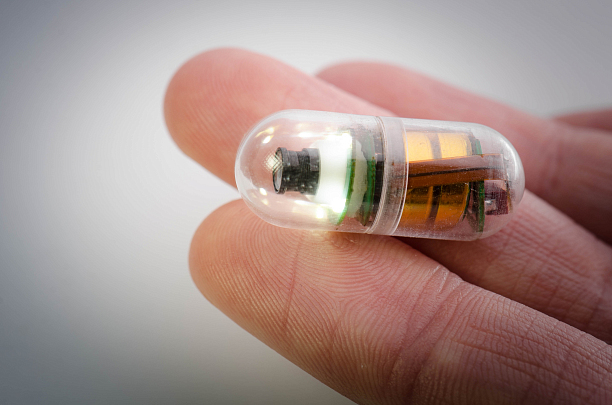
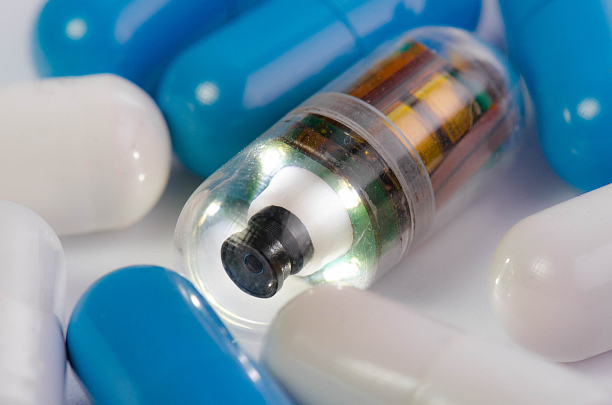
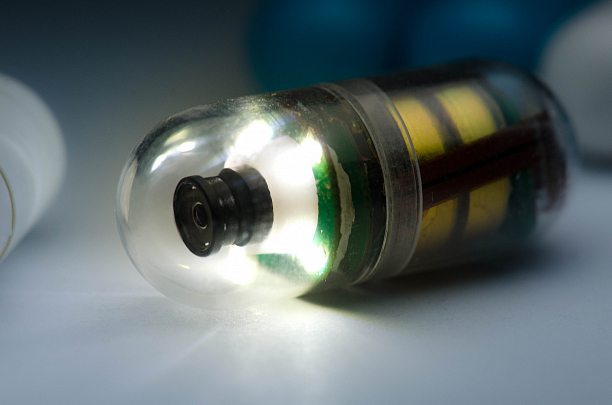
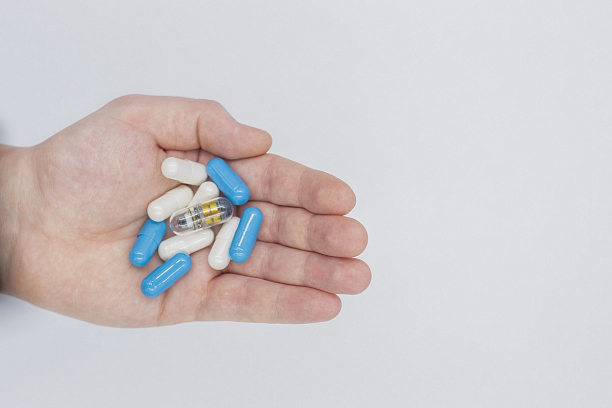
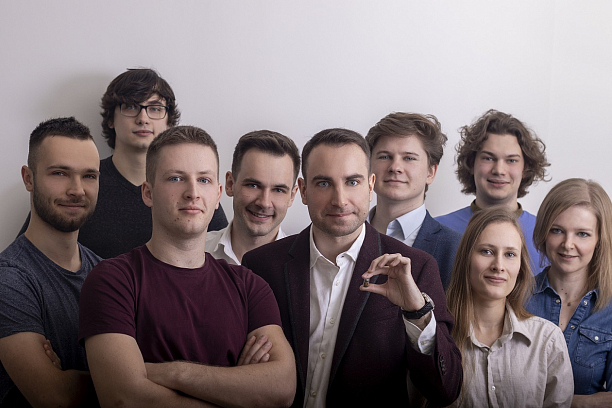
Product Video
Presentation
Sign in/Sign up